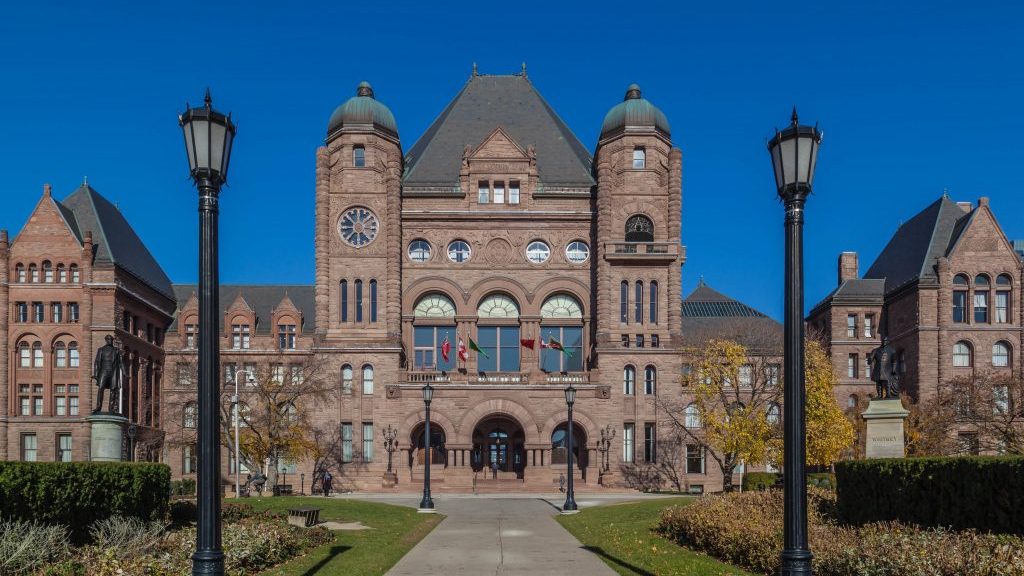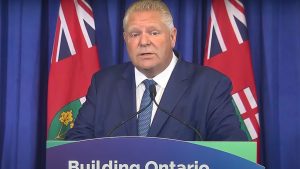Construction industry leaders are anxious to hear details about the new majority Progressive Conservative (PC) government’s platform and how it will be delivered, after Ontarians voted for change June 7, ending the longtime Liberal reign. As a follow-up to our pre-election coverage, the Daily Commercial News reached out to various construction industry organizations. In part one of this two-part series, stakeholders comment on PC Leader Doug Ford’s victory and what it could mean for the future of construction in the province.
With PC Leader Doug Ford named premier-elect of Ontario, defeating former premier Kathleen Wynne, there was a clear and strong indication from voters that “they wanted to toss out the Liberals,” said Ian Cunningham, president of the Council of Ontario Construction Associations, adding getting a strong commitment to infrastructure investment from the new government is of paramount importance.
“Less was known about the PCs’ intentions with regard to governing and their platform than the other two parties so it will be an interesting time,” he said. “There are a whole lot of new MPPs to meet, to engage with, to start new relationships with, to tell them about the construction industry, how it works and what the challenges are and to encourage them to understand that maintaining and further developing Ontario’s public infrastructure is important to both the economy of the province and our way of life.”
Other stakeholders agreed with Cunningham’s views.
Andy Manahan, executive director of the Residential and Civil Construction Alliance of Ontario, noted “a majority is good for any government to implement their agenda. In terms of the platforms that were out there, there was less detail in the PC plan compared with other parties but we have a general sense of direction. We heard very positive things from Doug Ford about infrastructure.”
Manahan hopes if Ford does choose to go with a smaller cabinet than the Liberals had, that the government will maintain a standalone infrastructure ministry. He also said if he chooses to run government like a business, he should delegate authority to his cabinet members.
“I would suggest that because the PCs have some pretty good bench strength,” explained Manahan. “That would result in better long-term decision making.”
Bruce Matthews, CEO of Consulting Engineers Ontario, said the organization is looking forward to providing input when it comes to making decisions on infrastructure priorities and investments.
“As far as our membership goes, this is the outcome that has the potential to be the most beneficial with the Progressive Conservatives being the more business-friendly party in terms of platform. They certainly had an extensive list of promises and plans with respect to infrastructure planning,” he stated.
There literally is $2 billion of premiums that could be returned to employers beginning next year
— David Frame
Ontario General Contractors Association
“The past government has done a fairly decent job with respect to making commitments to long-term planning for infrastructure. The thing we’re going to be attuned to here, is the new government going to scrap that and come out with their own long-term plan? Are they going to keep much of the promised longer-term spending commitments made by the previous government and augment it with their own particular priorities or something in between? It’s really hard to gauge at the moment.”
Clive Thurston, president of the Ontario General Contractors Association (OGCA), said he is “extremely optimistic” about the new government.
“I don’t believe in rhetoric, I believe in giving people a chance to show their true colours. While there are those that seem to think that Mr. Ford has already done that, I don’t buy into that,” he said. “I think he is very sincere in his desire to do what is right for the people of Ontario. By that I mean all of the people and particularly the industries and professionals that can help them. His team has already reached out to get help in how to best address the challenges that face the province.”
The OGCA has responded with some suggestions on where the government can find savings for the average taxpayer, including small business.
“We know there are a lot of savings just by making the procurement system more efficient,” explained Thurston. “That doesn’t cost people jobs, that’s about adopting efficient and proper protocols for the procurement of design and construction services. We have no doubt that if the government listens, which they said they are going to, and if the government consults, which they have indicated they are going to do, then that savings that Mr. Ford is looking for, that $6 billion, I think we could do better.”
David Frame, director of government relations for the OGCA, said this year the Workplace Safety and Insurance Board (WSIB) will “retire” its unfunded liability after charging employers in Ontario about $2 billion a year to pay it down. This presents a huge opportunity, he said.
“We’re going to go to the government and we’re going to say here is the opportunity to take the most expensive WSIB system in the country, with the best safety results, and actually provide rates that are reflective of what the costs are,” said Frame. “There literally is $2 billion of premiums that could be returned to employers beginning next year which can go to small businesses, many of whom are struggling, to use it to hire, train, expand etc.”
Part two of this post-election series will feature more industry reaction, focusing on the labour situation in Ontario.











Recent Comments